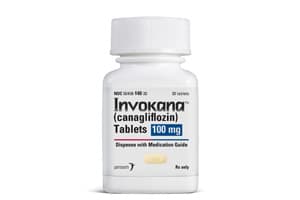
The US FDA has knocked back a combination diabetes product based on Johnson & Johnson’s canagliflozin and metformin because it wants more data on dosing.
The regulator wants to make sure the canagliflozin component of the the twice-daily combination is comparable to the once-daily formulation of the drug, which was approved under the Invokana brand name earlier this year.
Canagliflozin was the first compound in the brand new sodium glucose co-transporter 2 (SGLT2) inhibitor class to be approved for marketing in the US.
It looks set to be joined next month by AstraZeneca and Bristol-Myers Squibb’s Forxiga (dapagliflozin), which was backed by an FDA advisory panel last week, while Boehringer Ingelheim and Eli Lilly are following after with empagliflozin which was filed for approval earlier this year.
All three drugs lower blood sugar by blocking the re-absorption of glucose by the kidney and increasing the excretion of glucose in urine, which means they work completely independently of a diabetic patient’s insulin function.
In a statement, J&J’s Janssen R&D unit said it hopes to be able to meet the requirements in the FDA’s complete response letter (CRL) “from the comprehensive phase III clinical development programme for canagliflozin”.
J&J has not yet provided any guidance on Invokana’s early sales performance, and analysts expectations for the SGLT2 class have been somewhat dampened by the FDA’s earlier rejection of Forxiga amid concerns about cancer and liver toxicity.
Nevertheless, J&J claimed a 17 per cent share of the non-insulin, “new to brand” share of the type 2 diabetes market, which covers patients who are new to therapy, switched from another drug or have the drug added on to existing therapy. That rate suggests faster take-up in the early weeks than either AZ/BMS Onglyza (saxagliptin) or Boehringer/Lilly’s Tradjenta (linagliptin), two diabetes treatments in the DPP-4 inhibitor class.
That early take-up – along with the continued rise in diabetes numbers and difficulties in getting patients to their blood glucose targets – has led analysts to estimate sales of $600m-plus for Invokana in 2016.
The delay to a fixed-dose combination of canagliflozin and metformin may not be a major problem for J&J, as the two drugs can be administered separately if required and in any case some clinicians prefer to titrate patients to individual levels of the two drugs.
In Europe, J&J is lagging behind AZ and BMS which won approval for Forxiga there last year, while a fixed-dose combination of dapagliflozin and metformin – called Xigduo – has also been recommended for European approval.
Ultimately, it is expected that a combination of an SGLT2 inhibitor with a DPP-4 inhibitor may prove to be the most compelling therapeutic option, and Boehringer and Lilly seem to have a lead in this category with a empagliflozin/linagliptin candidate which is due to be filed next year.
Merck & Co and Pfizer are also in this race, and teamed up to combine Merck’s already-marketed DPP-4 inhibitor Januvia (sitagliptin) with Pfizer’s late-stage SGLT2 inhibitor ertugliflozin in a phase III trial earlier this year.




